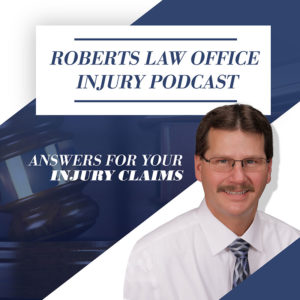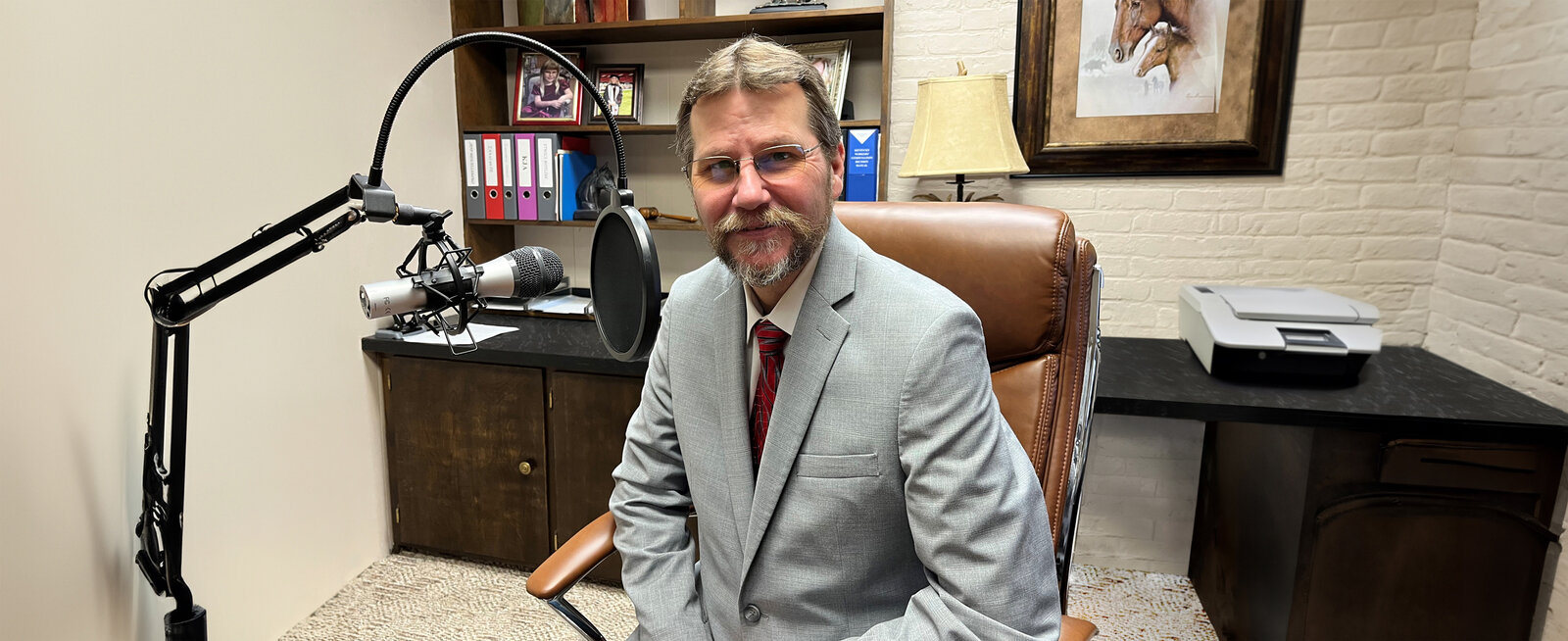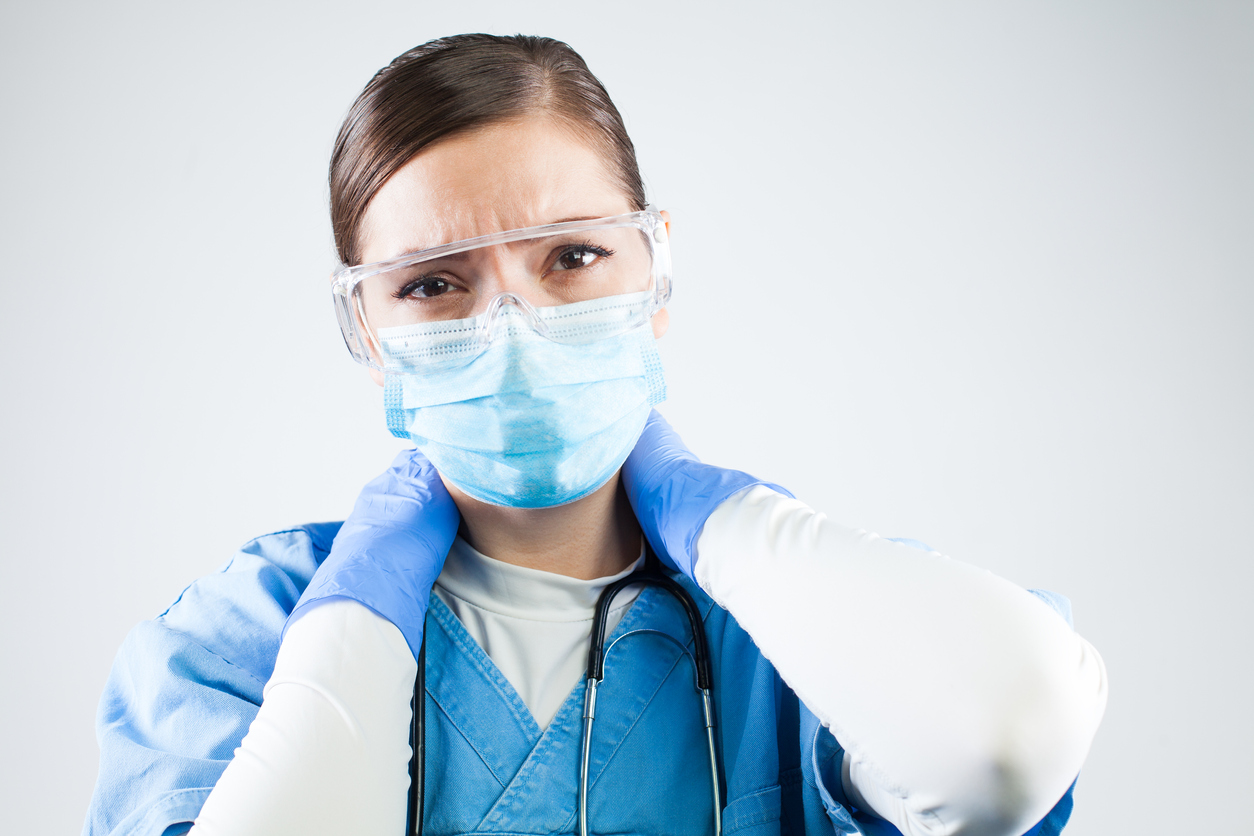Episode 62: Workers’ compensation attorney Jeff Roberts has offices in both Murray and Hopkinsville, Kentucky. Over the past 30 years he’s handled numerous claims from nurses, hospital staff and doctors who have been injured while working in the hospital. In this episode, Jeff will discuss some of the more common hospital injuries and workers’ compensation claims.

Back and Neck Injuries
Nurses and CNAs Have a Difficult Job. In Jeff’s experience, nurses and CNAs sustain a wide-variety of injuries due to the types of tasks they perform, especially when moving patients. Spinal injuries and shoulder injuries are actually fairly common. Moving heavy patients often requires awkward angles and stretching. When the spine is stressed, it can result in and injury to the low back or neck. Jeff discussed these types of injuries in Episode 61.
Cumulative or Repetitive Trauma Injuries
Nurses do a lot of walking on hard surfaces during a shift and over the course of a career. Knee injuries can occur because of the repetitive stress to the joint. Workers’ comp benefits are available for cumulative trauma injuries.
Any time a specific motion is repeated, over time, it can accelerate the wear and tear on the joints. Walking on hard surfaces, lifting heavy objects, even typing can lead to cumulative trauma. Many people have heard of carpel tunnel syndrome. This is a prime example. Sometimes, the pain is blamed on the aging process. In reality, it may be cumulative trauma.
Slip and Fall Injuries
Because hospitals, nursing homes and other assisted living facilities often have tile floors, the risk of an injury due to a slip and resulting fall is significant. This risk extends to nurses and other staff members. When any type of fluid accumulates on a surface, it creates a hazard that often goes unrecognized, until it’s too late. Common injuries can include knee injuries, fractured or broken wrists, fracture hips, and various injuries to ligaments and tendons.
Unfortunately, if the individual strikes her/his head as a result of the fall, it could lead to a brain injury. In the most tragic cases, it could also result in a workplace fatality.
Falls in a hospital aren’t limited to the hallways. Staff, including custodian and medical professionals may fall in a stairway. It’s possible the family may move furniture, equipment or even bags in the patient’s room. If someone enters the room with a clipboard, medication a lunch tray or other items, that person may not see notice the obstruction leading to in an injury.
While no one wants to think of these serious injuries, and while the medical professionals will try to quickly treat your injury, these are still classified as workers’ compensation injuries. There are benefits available to you.
You Aren’t Required to Prove Negligence
Under Kentucky workers’ compensation law, negligence doesn’t play the same type of role it would in a typical car accident. If you are injured in the normal course of work, you should qualify for workers’ comp. You don’t have to prove someone else did something to cause the injury. There are some exceptions, but they are relatively rare. Jeff has over 30 years of experience handling Kentucky workers’ comp claims stemming from many different types of injuries and situations. He’s prepared to discuss your injury and provide you with an informed opinion as to your rights and options.
Accidental Stick Injuries
The risk of an accidental needle stick is a serious risk for nurses. Jeff has represented nursing professionals who were involved in this dangerous situation. The risk of transmission of disease can have life-altering consequences for the nurse. While these injuries are becoming less common, they do still occur. Luckily, Kentucky workers’ comp benefits are available to the medical professional who incurs an accidental needle stick.
Exposure to Communicable Diseases
Obviously, sick people go to hospitals and clinics to seek medical treatment. The doctors and nurses are frequently exposed to a wide variety of communicable diseases. Because your employment places you at an increased risk, compared to general public, you will most likely qualify for Kentucky workers’ compensation.
Injuries to other Hospital Staff
A hospital or other medical facility requires the work of many staff members to ensure it runs properly and efficiently. These staff members are also exposed to the risk of hospital injuries. Orderlies are asked to assist medical professionals to perform various tasks.
When a patient enters the ER, that person may be intoxicated or under the influence of drugs. This can cause them to act erratically and dangerously. If an orderly or other staff security member engages with that individual, it’s quite possible an injury to the hospital employee could occur. Again, these would qualify for workers’ comp benefits.
A similar type of situation could occur if a patient experiences a seizure or adverse drug reaction. This might also include someone who is dealing with psychological issues, causing them to act violently.
Medical facilities typically have cafeterias, laundry departments and other normal areas involving typical piping, valves and machinery. These environments also present potential risks for the employees and staff who work there. Lifting heavy loads of items, such as soiled linens or trash, can result in typical work-related injuries to the back, neck, knees, wrist, etc. Regardless of whether that person is an employee of the hospital, or a contracted vendor, if he/she sustains an injury in the normal performance of their job, it’s usually covered by workers’ comp.
Hospital Parking Lot Injuries
Interestingly, if an employee of the hospital or a physician working at the hospital is injured in the hospital parking lot, they are most-likely covered by workers’ compensation. They were in the parking lot because they were assumed to have been going to or from work. You don’t have to have been clocked-in at the time. You were on the operating premises of the hospital or other medical facility.
Parking lot injuries could include a trip and fall. Injuries from a collision with another vehicle or a collision while walking by another driver also, qualify.
Hospital Injuries to Physicians
Jeff has represented physicians who suffered work-related injuries. These can have a significant impact on the doctor’s ability to continue to work. An example would be a surgeon who receives a significant injury to the hand or nerves around the hand/arm. This could actual be the result of a fall on the hospital premises.
Another point Jeff raises is that some physicians work directly for the hospital, while others may be employed by an outside, physicians group. If the doctor is employed by a group, but incurs the injury while on hospital premises, there could actually be two or more claims.
First, the group’s workers’ comp insurance policy would be responsible for the medical expenses, treatment, etc., related to the workplace injury. Second, the hospital could be exposed to “third-party” claim if they were somehow responsible/negligent. In one case Jeff handled, the physician tripped over a misplaced cord in a walkway.
Jeff Is Located Near 2 Area Hospitals
Jeff has an office in Hopkinsville, not far from Jennie Stuart Health. His Murray, Kentucky office is located fairly close to Murray Calloway County Hospital. He’s represented healthcare professionals from across the Jackson-Purchase area, including Marshall County Hospital, Lourdes (Western Baptist) in Paducah and others.
The information Jeff discussed today would be applicable to medical clinics, doctors’ offices, nursing homes, assisted living facilities and other places where dedicated medical professionals and staff work hard every day to take care of our loved ones. He knows it’s often a difficult and demanding job. He is ready to help you with your Kentucky workers’ comp questions and claims.
Recognized Experience Throughout Kentucky
Jeff is often contacted by other attorneys across the state for answers to their Kentucky workers’ comp questions. He’s regularly asked by other attorneys to handle workers’ comp claims for either their clients or family members of the attorneys. In fact, the majority of claims Jeff handles come from referrals from past clients and/or other attorneys.
Jeff Roberts Represents Injured Clients Throughout Kentucky
With offices located in Calloway County and now Christian County, Jeff has a history of representing personal injury clients, workers’ compensation clients and social security disability clients across the state. He’s represented clients from Paducah, Bowling Green, Louisville, Covington, Whitesville and many other Kentucky locations. He’s not just a Western Kentucky injury attorney.
We hope you found this episode insightful and helpful. Thank you for listening!
Is It Time to Speak with an Attorney about your Workers’ Compensation Claim?
The office phone number is (270) 753-0053 or toll free at 800-844-5108. For more information, visit www.JeffRobertsLaw.com. This podcast is meant to provide information and is not legal advice. Jeff’s principal office is located at 509 Main Street, Murray, Kentucky. Co-host Jim Ray is a non-attorney spokesperson. This is an advertisement.





